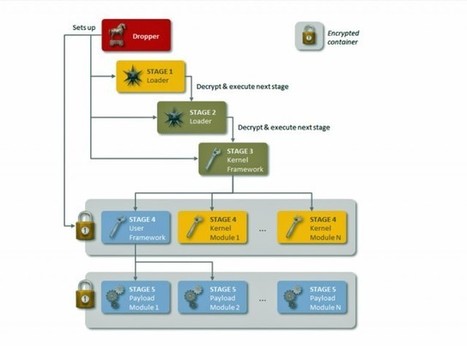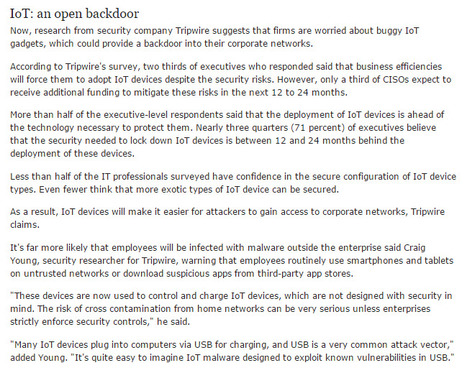Bösartige Angreifer kapern Apache-Webserver und leiten deren Besucher auf Schad-Websites um. Die Tarnung der Malware ist fast perfekt.
Eine Hintertür, die von Administratoren nur schwer bemerkt werden kann, sorgt dafür, dass Internet-Anfragen an Apache-Server nicht in Logs aufgenommen werden. Die gesendeten http-Anfragen, die in Wirklichkeit einen Trojaner steuern, sind nicht ersichtlich. Der Rest des Angriffs läuft im Speicher ab, Bugfixes gibt es noch nicht.
29. April 2013 von Manfred Kohlen 0
Die Malware Linux/Cdorked.A ist eine raffinierte Hintertür, die alles tut, um den Internetverkehr auf schädliche Webseiten umzuleiten, schreibt Sicherheitsanbieter Eset in einer aktuellen Warnung. Der Schädling sei so gut, dass er laut eigener Analysen schon hunderte von Webservern unter seine Kontrolle gebracht habe.



 Your new post is loading...
Your new post is loading...
















Learn more:
- http://www.scoop.it/t/securite-pc-et-internet/?tag=Linux